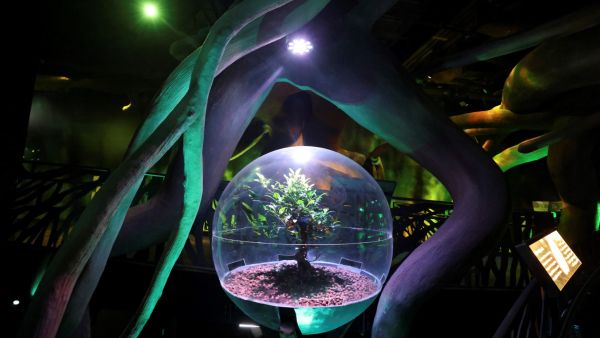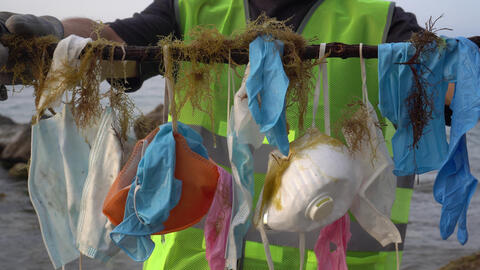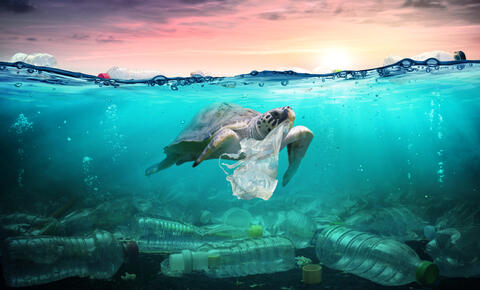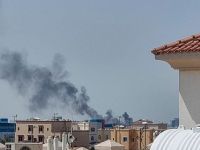Being one of the most deserted regions in the world, the Middle East has already started feeling the serious effects of Climate Change, pushing its nations closer to launching initiatives and applying measures that aim to protect the environment and relieve the risks of natural disasters.
According to scientific studies, the Middle East is one of the most vulnerable regions to environmental changes, which is why Arab countries have recently been reporting an unprecedented spike in drought conditions, dust storms, unusual heatwaves, and sea-level rise.
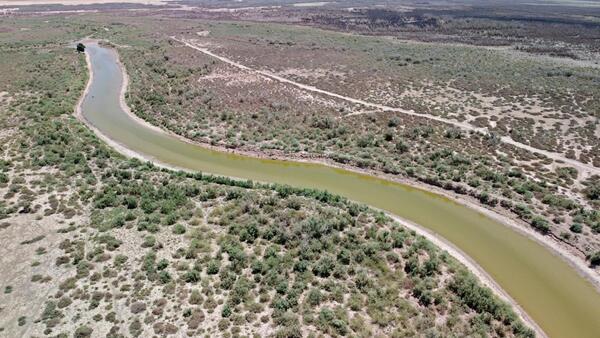
An aerial picture taken by drone shows receding waters due to drought at Iraq's Al-Hawizeh Marsh on the southern border with Iran, on May 31, 2022. (Photo by Asaad NIAZI / AFP)
This life-changing crisis has caused growing interest amongst the region's population in supporting initiatives and practices that help preserve the environment and potentially slow the damaging consequences of global warming.
It is worth noting that most eco-friendly initiatives have been reported in the most stable of the region's countries, particularly the GCC members whose strong economies support their effort for green futures.
Arab Initiatives for an Environment-Friendly Region
- As of June 2022, several Arab countries have issued either laws or drafts, banning single-use plastic products, including Jordan, UAE, Bahrain, Kuwait, and Qatar.
- Moreover, most Arab countries have special government committees that are tasked with initiating new programs, partnerships, and legal recommendations that fall within national strategies for environmental protection, all meant to innovate best practices that accommodate the region's needs.
- The UAE's 2021 Vision has a set of different programs that focus on renewable energy, agriculture, green investments, and clean transportation options, all put to help the government make the consistent transformation into being an environment-friendly one.
- Being the region's business hub, the Emirate of Dubai has announced its Dubai Clean Energy Strategy 2050, one that encourages all possible changes towards making clean energy sources provide residents with 25% of their energy needs by 2030, and increase its production to 75% by 2050.
- Last October, Saudi Arabia announced a comprehensive plan to address the different environmental challenges faced both in the country and the whole of the Middle East.
The Saudi Green Initiative outlined under the Mideast Green Initiative has allocated SAR 700 billion (~$450 billion USD) investment to contribute to the global's green economy, by reducing emissions to reach net-zero by 2060, greening 40 million hectares of land in the mostly deserted country, and increasing the protection of land and sea areas.
- A joint venture between Abu Dhabi's Masdar and ADNOC in 2016 has resulted in Al Reyadah facility in the UAE, which has been built to capture tons of carbon emissions, to make up for the lack of forests in the deserted country.
- In Saudi, a similar project has been started by the country's public petroleum and natural gas company Aramco. Converge project utilizes technology to not only capture CO2 emissions but to transform them into different other materials needed in different manufacturing applications.
- Local businesses are also trying to support government plans in the region, such as the pledge made by the Abu Dhabi-based Mubadala Investment Company in 2021, of donating $1.5 million annually for three years for the benefit of MBZ Fund conservation efforts for the protection of endangered flora and fauna in Africa and Asia.
These major initiatives join many smaller efforts to combat the consequences of climate change, such as growing rates of recycling, use of EVs, and the increasing popularity of solar panels in different countries of the region, all aimed at better preserving the environment.


